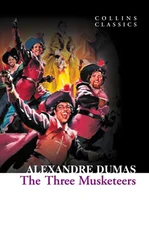Alexandre Dumas - The Prussian Terror
Здесь есть возможность читать онлайн «Alexandre Dumas - The Prussian Terror» — ознакомительный отрывок электронной книги совершенно бесплатно, а после прочтения отрывка купить полную версию. В некоторых случаях можно слушать аудио, скачать через торрент в формате fb2 и присутствует краткое содержание. Жанр: foreign_antique, foreign_prose, на английском языке. Описание произведения, (предисловие) а так же отзывы посетителей доступны на портале библиотеки ЛибКат.
- Название:The Prussian Terror
- Автор:
- Жанр:
- Год:неизвестен
- ISBN:нет данных
- Рейтинг книги:4 / 5. Голосов: 1
-
Избранное:Добавить в избранное
- Отзывы:
-
Ваша оценка:
- 80
- 1
- 2
- 3
- 4
- 5
The Prussian Terror: краткое содержание, описание и аннотация
Предлагаем к чтению аннотацию, описание, краткое содержание или предисловие (зависит от того, что написал сам автор книги «The Prussian Terror»). Если вы не нашли необходимую информацию о книге — напишите в комментариях, мы постараемся отыскать её.
The Prussian Terror — читать онлайн ознакомительный отрывок
Ниже представлен текст книги, разбитый по страницам. Система сохранения места последней прочитанной страницы, позволяет с удобством читать онлайн бесплатно книгу «The Prussian Terror», без необходимости каждый раз заново искать на чём Вы остановились. Поставьте закладку, и сможете в любой момент перейти на страницу, на которой закончили чтение.
Интервал:
Закладка:
"Which means, I suppose," observed Colonel Anderson, "that this account is incorrect."
"Not only incorrect, but incomplete. The 'young fool' it speaks of, not only hissed, but cried, 'Vive la France!' Further, he drank to the health of France, and also disposed satisfactorily of the four first who attacked, him. It is true that these three Prussian officers intervened. They wished him to cry 'Vive Guillaume I' and 'Vive la Prusse.' He mounted a table, and instead, gave them a recital of Alfred de Musset's 'Answer to the German Rhine' from end to end. It is also true that just then the reports of Blind's revolver attracted general attention, and, not proposing to fight all Berlin, he profited by the incident to escape, taking refuge in the French Embassy. He had challenged one, two, or four adversaries, but not the entire populace. He also left a message at the Black Eagle to be given to any enquirers to the effect that he could not remain in Berlin, but would wait in some neighbouring country in order to oblige any one demanding satisfaction. And, leaving Berlin by an early train he arrived at Hanover an hour ago and at once sent his card to Herr Bodemeyer, hoping that that gentleman will kindly announce in his Gazette both the town and the hotel where this 'young fool' may be found by any one unable to find him at the Black Eagle."
"Good heavens," exclaimed the editor, "then it was you who caused this mighty uproar at Berlin."
"Even I; small things make much noise, as you see." Turning to the Englishman, Benedict continued, "And now you also see why I warned Colonel Anderson that I had a favour to ask him. I want him to be my second in case, as is quite possible, some wrathful individual should arrive demanding why, being in a foreign country, I have dared to uphold the honour of my own."
His hearers, with one accord, immediately offered their hands. Benedict continued:
"And now, to show I am not absolutely unknown, here is a letter from the Head of our 'Department of Fine Arts' to Herr Kaulbach, Painter to the King of Hanover. He lives here, does he not?"
"Yes, the king had a charming house built on purpose for him."
At this moment the door communicating with the next room was thrown open, the rotund figure of the landlord appeared in the opening and a solemn and impressive voice announced:
"Their Excellencies are served."
Whether the chef had perceived that Benedict really understood what he was talking about, or else had had orders from his master to do what he was told, he had, at any rate, carried out his instructions to the very last letter, the result being neither French, English, nor German, but cosmopolitan, a banquet for a conference if not a congress. Nor was brilliant conversation lacking. Bodemeyer, like all German journalists, was a well-read man, but had never been outside Hanover. Anderson, on the contrary, had read little, but had travelled everywhere and seen much. He and Benedict had explored the same countries and encountered the same people. Both had been at the siege of Pekin; Anderson had followed Benedict in India, and preceded him in Russia. Both related their experiences, the one with English reserve and humour, the other with French vivacity and wit. The Englishman, a true modern Phœnician, saw everything from the industrial and commercial point of view, the Frenchman from that of intellectual progress. Their different ideas, brought forward with warmth and also with the courtesy of well-bred and distinguished men, crossed each other like foils in the hands of experienced fencers, emitting sparks, brilliant if transitory. Bodemeyer, unused to this style of discussion, endeavoured to give it a philosophical turn, in which he was met by Benedict, but which Anderson found difficult to follow. The journalist seemed unintelligible, but Benedict's theories he understood as he had never understood before.
The clock striking eight abruptly terminated the conversation. The editor sprang up.
"My paper!" he cried, "my 'Gazette'! It is not ready by half!" Never before had he succumbed to such an intellectual temptation. "Frenchmen are the very devil," he muttered, trying in vain to find a hat which would fit him. They are the champagne of the earth, they are clear, strong, and sparkling. In vain did Benedict entreat him for five minutes in which to write his announcement. "You must let me have it before eleven o'clock," cried Bodemeyer, as, having discovered his own hat and cane he fled as if the enemy were behind him.
Next morning the following announcement might have been read in the "Hanoverian Gazette".
"On June 7th, 1866, in Unter den Linden at Berlin I had occasion to both give and receive several blows in an encounter with various excellent citizens who wished to tear me to pieces because I had publicly emptied my glass to the glory of France. I have not the honour of knowing who gave these blows, but, wishing to be known by those who received mine, I hereby announce that during the next eight days I may be found at the Hôtel Royal, Hanover, by any one wishing to criticize either my words or actions on the said occasion, and I particularly hope that the author of a certain article referring to me in yesterday's issue of the 'Kreuz Zeitung,' will accept this invitation. Being ignorant of his name, I have no other means of addressing him.
"I wish to thank the three Prussian officers who interfered to protect me from the amiable people of Berlin. But, should any of them consider himself offended by me, my gratitude will not extend to refusing him satisfaction.
"I said then and I repeat now, that I am familiar with the use of all weapons."
"BENEDICT TURPIN. "At the Hôtel Royal, Hanover."CHAPTER VII
KAULBACH'S STUDIO
Benedict lost no time in leaving his note at the "Gazette" office, and his letter of introduction at Kaulbach's studio, where he left also his card on which was written, "I hope to have the honour of calling on you to-morrow." He therefore ordered Lenhart to be ready a little before eleven, in order to pay his two visits, one of thanks to Herr Bodemeyer, and one to Kaulbach. As the latter lived at the extreme end of the town where the king had had a charming little house erected for him, he called at Herr Bodemeyer's office first. The last copies of the "Gazette" were just being struck off, and Benedict was able to convince himself that his letter was actually in print. As the "Gazette" had numerous subscribers in Berlin and would be on sale there at six that evening, there was no doubt but that his communication would be widely read. The dissolution of the Chamber was confirmed and it was certain that mobilization would be announced on the morrow. Benedict continued on his way to the studio.
Seen by daylight the house appeared to be a pretty villa in Italian style, standing in a garden enclosed with iron railings. The gate stood invitingly open. Benedict entered, rang, and was answered by a servant in livery, whose manner showed that the visit was expected. He at once led the way to the studio.
"The master is just finishing dinner," he said, "but he will be with you in a moment."
"Tell the master," replied Benedict, "that I am too delighted at being able to see the beautiful things here to wish to hurry him."
And, indeed, the studio, full of original pictures, sketches, and copies of some of the works of the greatest painters known, could not fail to be intensely interesting to an artist such as Benedict, who now suddenly found himself in the sanctuary of one of the greatest of German painters. Kaulbach is an artist who has adhered to his Christian faith, and everywhere one saw proofs of this. But among highly finished sketches for some of his world-famous pictures, such as "The Dispersion of Mankind," "The Taking of Jerusalem," etc., Benedict's attention was drawn to a modern portrait group of five persons. It represented an officer, evidently of high rank, holding a boy of about ten by the hand. His charger stood ready on the terrace below, and a lady in the prime of life sat near him with two little girls, one leaning against her knee, while the other sat at her feet and played with a small dog and some roses. The picture, apparently, was a work of love, for the artist had taken immense pains with it; too much so, in fact, for the elaborately finished details threw the faces into the background, and the general effect was too flat.
Читать дальшеИнтервал:
Закладка:
Похожие книги на «The Prussian Terror»
Представляем Вашему вниманию похожие книги на «The Prussian Terror» списком для выбора. Мы отобрали схожую по названию и смыслу литературу в надежде предоставить читателям больше вариантов отыскать новые, интересные, ещё непрочитанные произведения.
Обсуждение, отзывы о книге «The Prussian Terror» и просто собственные мнения читателей. Оставьте ваши комментарии, напишите, что Вы думаете о произведении, его смысле или главных героях. Укажите что конкретно понравилось, а что нет, и почему Вы так считаете.












